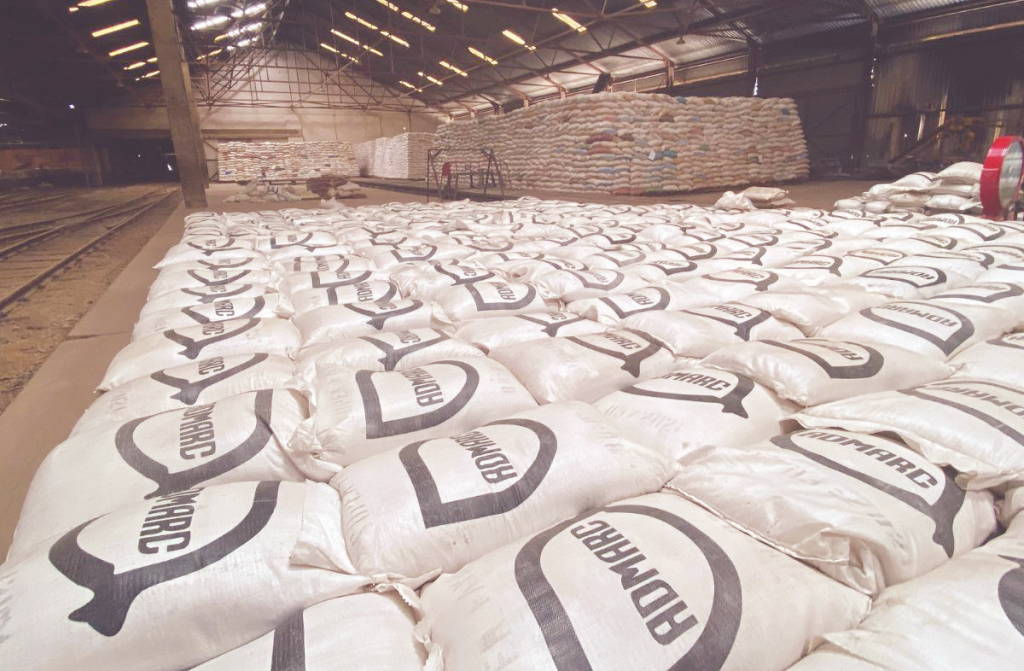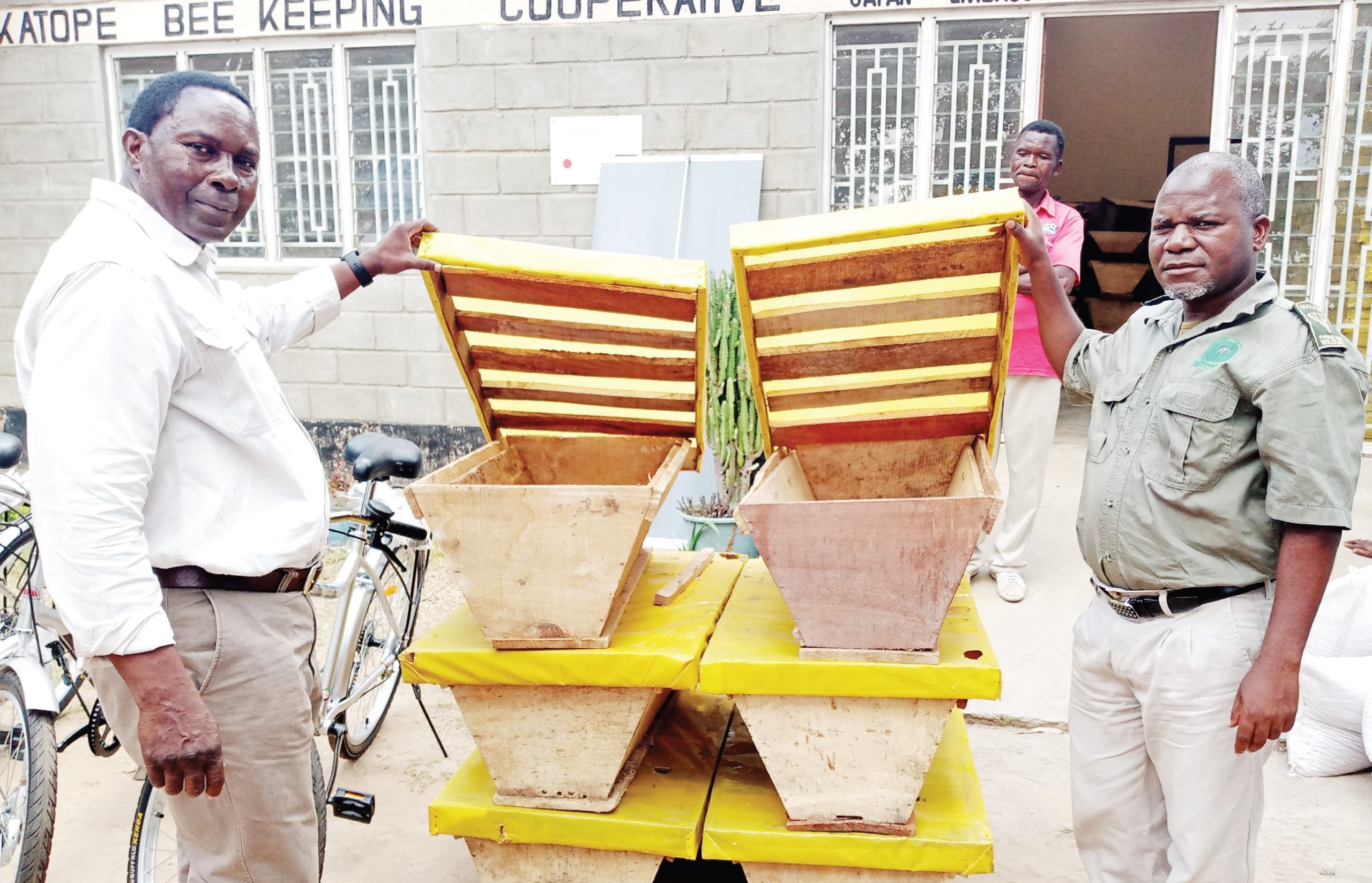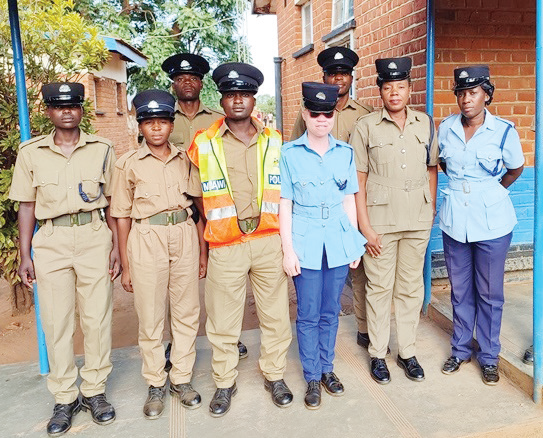Strategic grain reserves and food security in Malawi
The country should brace for more incidences of natural disasters that will threaten our traditional production and food systems. However, in all these, and amid increasing incidents of disasters, it will be important that the Strategic Grain Reserves (SGRs) are functional and up to their purpose, writes TAMANI NKHONO-MVULA.

Attainment of food security has been one of the most important policy undertakings for the Government of Malawi since independence.
Over the years, the country has observed several policy and programmatic interventions to address this vice with substantive amounts of resources from different stakeholders being spent.
However, despite all these efforts, food security in Malawi problematic. For instance, in the last growing season, billions of kwachas were spent on Affordable Inputs Programme (AIP) subsidies and other interventions meant to boost food production, but in the midst of that, the Malawi Vulnerability Assessment Committee (Mvac) figures shows a staggering 4.4 million Malawians are facing hunger.
The current situation can be explained and attributed to the natural disasters such as Cyclone Freddy that affected much of the Southern and Eastern regions, the droughts in much of the Northern Region but also the challenges affecting the AIP implementation.

However, the fact of the matter remains that these disasters will increase in frequency and intensity as we go along due to climate change.
Now, if we get the comfort of our failure to attain food security as the reason of the natural disasters, does this mean that this country will be in perpetual hunger without any solution in sight?
With or without natural disasters, the authorities need to think hard and come up with climate smart policy interventions that should guarantee food security for the country despite any weather disturbance.
There are several policy options that the government should consider to address issues of food availability and accessibility for all and one such policy intervention is to ensure the proper management and utilisation of the SGRs.
As pointed out already, the country should brace for more incidences of natural disasters that will threaten our traditional production and food systems. However, in all these, and amidst the increasing incidents of disasters, it will be important that the SGRs are functional and are up to their purpose.
Additionally, I want to propose to government to increase volume and spread of the strategic grain reserves across the country. This could be justified with the increased numbers of hunger-stricken Malawians and the increased incidences of disasters that have spread to normally stable locations.
To guarantee the stability of grain supply to the SGRs, the government should also ensure that the grain to the facility is not procured from the open market but obtained through secured production lines.
Public-Private Partnership
To achieve this, one of the policy interventions that government should consider is to go into a public-private partnership for grain production for the SGRs.
I find it to be a risky policy undertaking for the SGRs maize to be procured from an open market, more especially in times of production uncertainties we are currently in.
For instance, this year, the National Food Reserve Agency (NFRA) was allocated about K12 billion to procure maize, however, it failed to meet its targets due to price instability on the open market.
Its late entry on the market meant that all the cheap maize, which NFRA was basing its budget estimates on was no longer on the market, thus leaving NFRA at the mercy of traders.
Such a situation has left the SGRs to be below capacity despite the looming hunger crisis with unprecedented number of Malawians missing food entitlements.
In that regard, my suggestion is that the SGRs must have a guaranteed and protected source of grain. What needs to happen is that the Ministry of Agriculture must not give the NFRA resources to buy maize on the open market but to go into contract farming with the able private sector institutions to massively produce maize for the SGR.
The role of NFRA must be to manage the SGRs. I understand that this can be a politically sensitive policy intervention for a number of reasons, one being that some of the suppliers of grain to the NFRA are politicians or the politically exposed individuals with a direct influence on such policy decisions.
However, the primary interest of government should be to guarantee and protect the people’s right to food than protecting the business interests of a few.
The government must ensure that the supply chain of grain to the SGRs has been reduced as much as possible to cut on the cost, which could increase procured volumes.
This will mean that the Ministry of Agriculture through NFRA should as much as possible buy directly from the producers through contract farming arrangement.
Buy maize on contract
This is what should happen: Firstly, it has to be noted that two of the most important and highly-consumed cereal crops in Malawi are maize and wheat (though wheat is such an important cereal, but much of wheat flour is imported and the crop is rarely talked of in Malawi’s agricultural policies).
At all cost, the government must ensure safe sufficiency in these two cereals crops. I propose that the Ministry of Agriculture should go into an SGRs production partnership with Press Agriculture, which has vast arrays of idle land to open up to 10 000 hectares of land for intensive maize production under both rain-fed and irrigated farming.
Additionally, the Ministry of Agriculture should engage the Malawi Defence Force (MDF) National Service to grow wheat under rain-fed and central pivots.
As such, wheat must also be considered in policy documents as a strategic food security crop in Malawi due to its importance as one of the widely consumed cereals.
The SGRs should start keeping wheat to be milled for bread flour price stabilisation. Basically, the role of the SGRs is to supply grain, especially maize for relief during disasters but also to stabilise the prices of grain on the market during times of low supply.
However, I would like to suggest that the role of the SGRs must be extended to provision of food stuff raw materials for industrial development.
For instance, if wheat becomes a strategic food security crop through the SGRs, it may need to be used as a raw material for bakeries to stabilise the price of bread.
Cheaper bread flour will guarantee food security for many. The war in Ukraine has exposed the vulnerability of most countries, including Malawi to ensure the need of being safe sufficient in wheat production.
Funding for this initiative should come directly from the government through the Ministry of Agriculture’s funding for the strategic grain reserve.
For instance, if NFRA is allocated K12 billion to buy maize as was the case this year, I would suggest that K6 billion should have been given to Press Agriculture and the MDF for maize and wheat production, respectively, and these should be guaranteed up to 60 percent of the SGRs volume.
The other 40 percent of the SGR should be reserved and be bought directly from the smallholder producers through Agricultural Development and Marketing Corporation (Admarc).
To this effect, Admarc should have been allocated the remaining K6 billion. Admarc is a very strategic institution in as far as agricultural development is concerned in Malawi and is a ready market for the rural communities through its vast and well spread network of markets.
Furthermore, through Admarc, the SGR can have a fourth function of poverty reduction as through Admarc, the SGR budgetary allocation will go directly to the rural communities thereby facilitating the growth of rural economies.
As a matter of fact, Admarc played the role of the SGR before liberalisation and the formation of NFRA, as such the increased SGR can use Admarc infrastructure in the short to medium term.
At the same time, Admarc should be encouraged to buy the stocks from organised farmers groups, especially women cooperatives and associations and the medium scale farmers under the mega farms’ initiative.
This will ensure that an allocation to NFRA has a multiplier effect on ending rural poverty than is the case at the moment where traders who have ripped off the farmers benefit leaving scores of farmers stuck in a perpetual cycle of poverty.
The arrangement will ensure that the SGR has guaranteed sources of supplies than is the case at the moment where NFRA has continually failed to meet its target.
The policy of buying from traders on the open market and making it difficult for the farmers to sell to NFRA has not helped the NFRA to get its needed volumes and has not contributed to agriculture development and ending rural poverty in Malawi. n
*Nkhono Mvula, PhD, is an expert of agricultural policy and development






One Comment